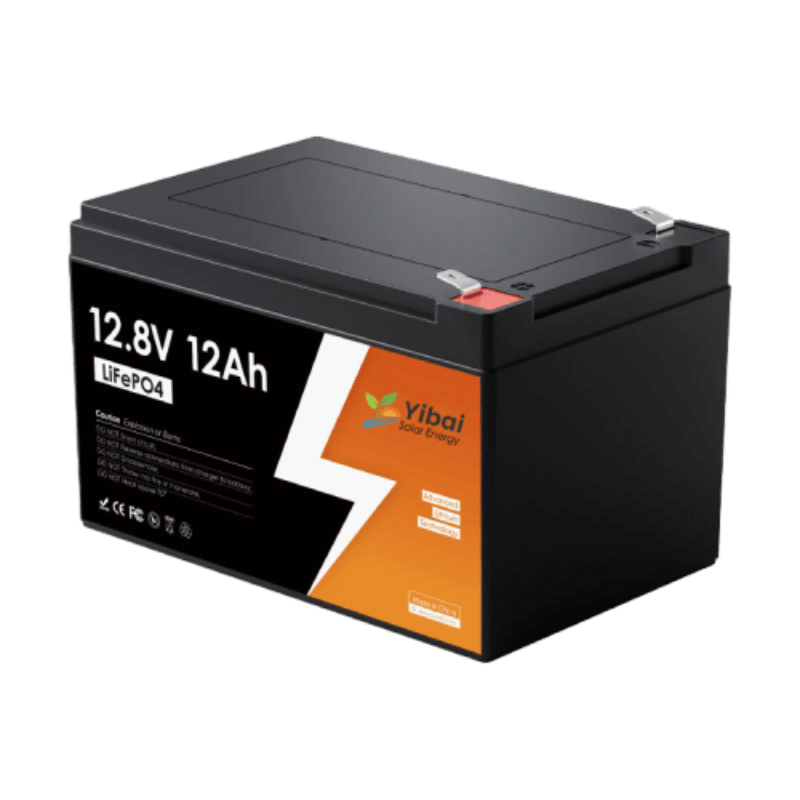Powering Your Business with Yibai Energy’s Cutting-Edge Technology
In today’s fast-paced global market, businesses need efficient and reliable power solutions to stay ahead. Whether you’re manufacturing electric vehicles, designing consumer electronics, or managing renewable energy systems, リチウムイオン電池 are the industry standard for their superior performance. But what exactly are lithium-ion batteries, and why should buyers choose them over traditional lead-acid batteries? How can Yibai Energy, a leading Chinese manufacturer, meet your bulk procurement needs? This article explores the composition, benefits, manufacturing process, applications, and real-world value of lithium-ion batteries, tailored for international businesses sourcing high-quality power solutions.
What Is a Lithium-Ion Battery?
Lithium-ion batteries are rechargeable energy storage devices that use lithium ions to transfer energy between electrodes. Unlike older technologies, they are lightweight, safe, and highly efficient, making them ideal for modern applications. First commercialized by Sony in the 1990s, lithium-ion batteries have transformed consumer electronics and now power industries like 電気自動車 (EVs), renewable energy storage, and industrial equipment.
Core Components of Lithium-Ion Batteries
A lithium-ion battery comprises four key components:
Cathode (Positive Electrode): Made from materials like lithium cobalt oxide, lithium iron phosphate (LiFePO4), or nickel-cobalt-manganese (NCM), the cathode determines capacity and voltage.
Anode (Negative Electrode): Typically graphite, the anode stores lithium ions during charging and releases them during discharge.
Electrolyte: A liquid or gel that conducts lithium ions, enabling energy flow between electrodes.
Separator: A thin polymer membrane that prevents contact between the cathode and anode, reducing short-circuit risks.
These components deliver high energy density, fast charging, and long cycle life, making the lithium-ion batteries a top choice for businesses.
A Brief History
Lithium-ion technology evolved through key milestones:
1912: Gilbert N. Lewis began researching lithium metal batteries.
1970s: M.S. Whittingham developed early lithium batteries using titanium sulfide and lithium metal.
1980: John Goodenough discovered lithium cobalt oxide as a high-performance cathode material.
1982: Illinois Institute of Technology researchers found graphite’s lithium-ion intercalation properties, enhancing safety.
1992: Sony introduced the first commercial lithium-ion battery with a graphite anode.
1996: Lithium iron phosphate (LiFePO4) emerged, offering improved safety for high-current applications.
Today, lithium-ion batteries lead the market due to their efficiency, rechargeability, and eco-friendly design, aligning with global sustainability trends.
Why Choose Lithium-Ion Batteries? Key Benefits for Businesses
The lithium-ion batteries outperform traditional 鉛蓄電池, offering significant advantages for buyers sourcing in bulk. Here’s why they’re the smart choice:
1.高エネルギー密度
With an energy density of 150-250 Wh/kg, lithium-ion batteries store more power in less space compared to lead-acid batteries (30-50 Wh/kg). This enables compact, lightweight designs for devices or EVs, reducing material and shipping costs for bulk buyers.
2. Long Cycle Life
Lithium-ion batteries last 500-2,000 cycles, far surpassing lead-acid’s 200-500 cycles. This longevity minimizes replacement costs, a key consideration for businesses procuring large quantities.
3. Fast Charging
The lithium-ion batteries charge to 80% in 30-60 minutes, compared to 6-8 hours for lead-acid. This reduces downtime for EV fleets, industrial equipment, or consumer devices, boosting operational efficiency.
4.ローメンテナンス
Unlike lead-acid batteries, which require regular electrolyte checks, lithium-ion batteries are maintenance-free. The sealed designs save businesses time and labor costs.
5. Enhanced Safety
Equipped with advanced battery management systems (BMS), Lithium batteries monitor voltage, temperature, and current to prevent overcharging or overheating. Chemistries like LiFePO4 offer superior thermal stability, minimizing fire risks compared to lead-acid’s corrosive electrolytes.
6. Eco-Friendly Profile
The lithium-ion batteries contain no toxic metals like lead or cadmium and are recyclable, supporting sustainable supply chains. Their longer lifespan reduces waste, aligning with corporate environmental goals.
7. Lightweight Design
At roughly one-third the weight of lead-acid batteries for the same capacity, the lithium batteries lower transportation costs and simplify installation, a major advantage for international bulk buyers.

How Are Lithium-Ion Batteries Made?
Yibai Energy’s state-of-the-art manufacturing process ensures high-quality lithium-ion batteries for bulk procurement. Here’s an overview:
1. Material Composition
Key materials include:
Primary Materials: Cathode (e.g., NCM, LiFePO4), anode (graphite), electrolyte (lithium salts), and separator (polymer membrane).
Auxiliary Materials: Copper and aluminum foils, conductive agents, binders, and casings.
Yibai Energy sources high-purity materials to guarantee consistent performance for large orders.
2. Manufacturing Stages
The process involves four stages:
Electrode Preparation: Mixing cathode and anode slurries, coating them onto foils, and drying, rolling, and cutting into electrodes.
Cell Assembly: Stacking or winding electrodes with separators, encasing them, and injecting electrolyte before sealing.
Activation and Testing: Charging and discharging cells to activate them, followed by strict quality checks for capacity and safety.
Battery Assembly: Combining cells into packs with BMS for specific applications.
3. Equipment Used
Yibai Energy employs advanced equipment:
Front-End: Vacuum mixers, coating machines, and slitting machines for precise electrode production.
Mid-End: Winding or lamination machines, injection systems, and sealing welders for cell assembly.
Back-End: Testing and capacity-sorting machines for quality assurance.
Yibai Energy’s cutting-edge facilities ensure high-quality, cost-competitive batteries for buyers.
Applications of Lithium-Ion Batteries
The lithium-ion batteries power diverse industries, offering scalable solutions:
コンシューマー・エレクトロニクス: Smartphones, laptops, and wearables benefit from compact, long-lasting batteries (e.g., a 4,000 mAh battery powers a smartphone for 24 hours).
電気自動車(EV): NCM or LiFePO4 batteries provide ranges over 300 miles, ideal for fleet operators and automotive manufacturers.
エネルギー貯蔵システム(ESS): Batteries store solar or wind energy for homes, businesses, or grids, supporting base stations and microgrids.
Industrial Applications: Power electric forklifts, golf carts, and automated guided vehicles (AGVs) with high discharge rates.
Emerging Markets: Drones, robotics, and medical devices leverage compact, high-energy batteries.
Lithium-Ion vs. Lead-Acid Batteries: A Comparison
For B-end buyers, choosing between lithium-ion and lead-acid batteries is critical. Here’s a side-by-side comparison:
特徴 | Lithium-Ion Battery | 鉛蓄電池 |
|---|---|---|
エネルギー密度(Wh/kg) | 150-250 | 30-50 |
サイクル寿命(サイクル) | 500-2,000 | 200-500 |
充電時間 | 30-60 minutes to 80% | 6-8 hours |
重量 | ~1/3 of lead-acid for same capacity | Heavy, bulky |
メンテナンス | Maintenance-free | Regular electrolyte checks |
安全性 | BMS-enhanced, low fire risk | Risk of leaks, corrosive acid |
Environmental Impact | Recyclable, no toxic metals | Contains lead, less recyclable |
Why Choose Yibai Energy’s Lithium-Ion Batteries: They offer longer lifespans, lower total cost of ownership, and superior performance, making them a cost-effective choice for bulk buyers despite higher upfront costs.
Powering Success with Yibai Energy
EcoPower Solutions, a European distributor of renewable energy systems, partnered with Yibai Energy to source lithium-ion batteries for their solar storage products. Procurement Director Anna Schmidt shares their experience:
“We previously used lead-acid batteries, but their weight and short lifespan drove up costs and led to customer complaints. Switching to Yibai Energy’s lithium-ion batteries transformed our business. Their high energy density enabled compact, efficient storage systems, and the 1,000-cycle lifespan cut replacements by 50%. Lower weight reduced our logistics costs, and our clients rave about the reliability. Yibai Energy’s competitive pricing and quality made them the perfect partner for our bulk needs.”
Future Trends in Lithium-Ion Battery Technology
Yibai Energy stays ahead of industry trends to offer cutting-edge solutions:
固体電池: Using solid electrolytes for higher safety and energy density.
Cobalt-Free Chemistries: Reducing costs and ethical concerns.
Recycling Advances: Recovering lithium, nickel, and cobalt for sustainability.
High-Nickel Cathodes: Increasing energy density for longer EV ranges.
These innovations ensure the lithium batteries remain a top choice for buyers.
FAQs About Lithium-Ion Batteries
Why are lithium-ion batteries better than lead-acid?
They offer higher energy density, longer cycle life, faster charging, and no maintenance, ideal for cost-conscious businesses.
How long do Yibai Energy’s lithium batteries last?
Typically 500-2,000 cycles, or 2-10 years, depending on usage and chemistry.
Are Yibai Energy’s lithium batteries safe for large-scale use?
Yes, our advanced BMS and stable chemistries ensure safety for bulk applications.
Can Yibai Energy customize batteries?
Absolutely, we tailor materials, capacities, and designs to meet your needs.
Why source lithium batteries from Yibai Energy in China?
We offer high-quality production, competitive pricing, and scalable supply for bulk orders.
Partner with Yibai Energy for Your Battery Needs
Yibai Energy’s lithium-ion batteries are revolutionizing industries with their high energy density, durability, and eco-friendly design. For international buyers, our batteries offer reliability, cost savings, and versatility for EVs, electronics, and energy storage. Backed by advanced manufacturing and rigorous quality control, Yibai Energy is your trusted partner for bulk procurement.
Ready to power your business with Yibai Energy’s lithium-ion batteries? Contact us today to explore customized solutions for your bulk purchasing needs. Partner with Yibai Energy and drive your business forward!
Discover how Yibai Energy’s lithium-ion batteries can elevate your products. Visit our website or reach out for a quote and see why global businesses trust us for their power solutions!
